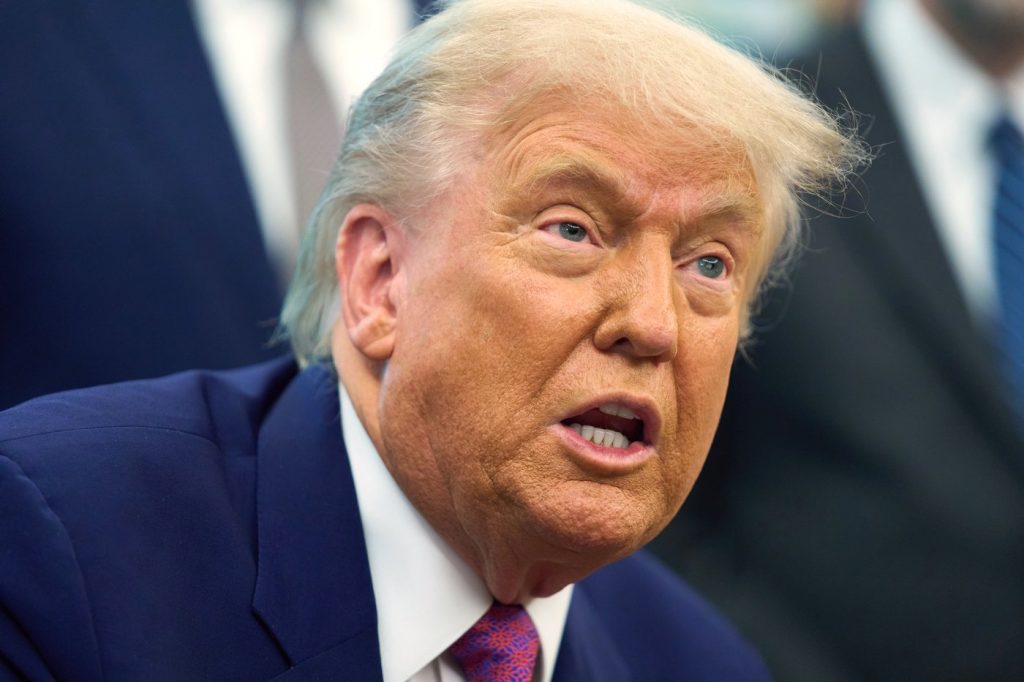NEW YORK (AP) – Former President Donald Trump is set to take his battle to overturn a criminal conviction to a federal appeals court on Wednesday. This move is part of his ongoing effort to challenge a verdict related to hush money payments, delivered in May 2024, in connection to allegations involving porn actor Stormy Daniels.
A three-judge panel from the 2nd U.S. Circuit Court of Appeals will hear arguments regarding Trump's long-standing request to shift the New York case from state court to federal court. By doing so, Trump aims to seek a retrial based on grounds of presidential immunity, claiming that activities conducted while he was in office should fall under federal jurisdiction.
Trump's legal team is urging the federal courts to intervene after a lower court judge declined their requests on two separate occasions. They are asking the appeals court to take control of the criminal case with the ultimate goal of overturning the guilty verdict, which is currently under review in a state appellate court.
In filings, Trump’s attorneys stated, “The 2nd Circuit should determine once and for all that this unprecedented criminal prosecution of a former and current President of the United States belongs in federal court.” The Manhattan district attorney’s office, which prosecuted the case, is advocating for it to remain in state court. However, the Justice Department, partly staffed by Trump’s former criminal defense lawyers, supports his move to federal court.
If Trump does not prevail in this latest push, he has the option of appealing to the U.S. Supreme Court. Notably, he was convicted of 34 felony counts concerning falsified business records to hide a hush money payment to Stormy Daniels amid allegations of an affair that threatened his 2016 presidential bid. Trump has consistently denied the allegations and asserts that he did nothing wrong. This particular case marked the only one of his four criminal indictments that reached a trial phase.
Trump's attorneys filed to transfer the case to federal court after his March 2023 indictment, asserting that former presidents should be tried in federal court for actions related to their official duties. As part of the case involved checks written during his presidency, they argue this is a critical point for consideration. They also attempted to shift the case again following his conviction, claiming that the prosecution violated Trump’s constitutional rights, particularly in light of a key Supreme Court ruling concerning presidential immunity that was established shortly after his trial concluded.
U.S. District Judge Alvin Hellerstein dismissed both motions, indicating that Trump’s conviction was about his personal affairs rather than his responsibilities as president. Hellerstein affirmed that hush money payments linked to his case were personal, unofficial actions, not connected to the authority of his office.
Trump's legal representatives have contended that the prosecutors hastily moved to trial instead of waiting for the Supreme Court's decision on presidential immunity, and they criticized the introduction of evidence regarding his actions and reactions while in the White House, which they argue should have been excluded under the new ruling.
It's noteworthy that Trump’s former legal counsel, Todd Blanche, is now the Deputy U.S. Attorney General, while another attorney, Emil Bove, holds a significant position within the Justice Department. The trial judge, Juan M. Merchan, dismissed Trump’s arguments regarding presidential immunity and imposed an unconditional discharge sentence on January 10, 2025, keeping the conviction intact but avoiding any form of punishment.
During his sentencing, which he attended via video, Trump described the case as a “political witch hunt,” declaring it a misuse of governmental power and labeling it an “embarrassment to New York.”











